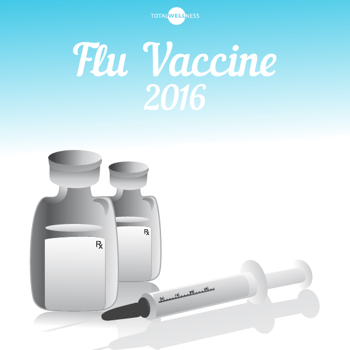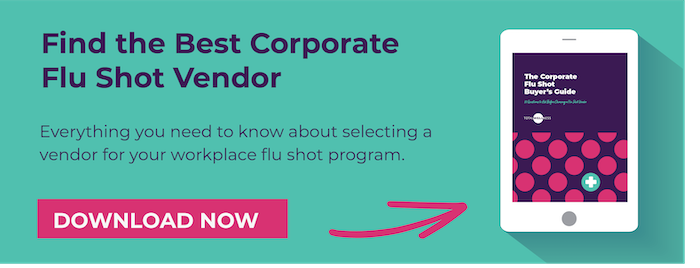 There are two primary types of flu virus that circulate each year and cause the office epidemics you’ve come to dread—Influenza A and Influenza B. Experts and flu shot creators have come up with a variety of options to help the public avoid both types of the flu.
There are two primary types of flu virus that circulate each year and cause the office epidemics you’ve come to dread—Influenza A and Influenza B. Experts and flu shot creators have come up with a variety of options to help the public avoid both types of the flu.
The two primary umbrellas under which those options fall are trivalent and quadrivalent vaccines. Trivalent flu vaccine protects against three strains of the flu—the two Influenza A strains predicted to circulate most and the one Influenza B strain predicted to circulate most.
Quadrivalent vaccine protects against four strains of the flu—the two Influenza A strains predicted to circulate most and the two Influenza B strains predicted to circulate most. Essentially quadrivalent flu shots offer the same coverage as trivalent plus coverage against one more strain of Influenza B. Obviously that’s a bit wider coverage, and therefore a bit better protection.
While it’s true that the industry seems to slowly be shifting towards quadrivalent shots as the preferred form of flu vaccination, it’s important to realize that the choice is yours. No flu shot choice will be a bad one because some protection is always better than none.
We’ve decided to lay out for you the flu shot options we’ll have available this fall. Remember, it’s not too early to get this discussion started with your wellness team. Mull over your options, and let us know if you have any questions about any of the specific vaccines.
Trivalent Multi-Dose Vials
Trivalent vaccine drawn up from multi-dose vials is probably our most commonly ordered flu shot. It’s a trivalent shot, so your employees will be protected against the three most common strains predicted to circulate this year.
This type of shot is stored in multi-dose vials, which means more than one dose of the vaccine is drawn up from each vial. Our nurses can usually draw up about ten doses per vial, in fact. The vaccine is stored in the vial, and drawn up into a syringe right before being administered to your employees.
Because the vials contain more than one dose of vaccine, they also have to contain a preservative called thimerosal. While there is plenty of research suggesting thimerosal isn’t harmful for anyone, some people have concerns about its effect on pregnant women. Out of an abundance of caution, some states have made laws prohibiting pregnant women from receiving vaccines containing the preservative.
TotalWellness offers events in all fifty states. To simplify the process and avoid potential problems or missteps regarding those laws, we do not offer multi-dose vaccine to pregnant women at all.
Trivalent Pre-Filled Syringes
The solution to the concerns about preservatives is to vaccinate using syringes that have been pre-filled by the manufacturer. We offer trivalent pre-filled syringes, but they’re primarily ordered with the intention of being administered to pregnant women.
A pre-filled syringe is a preservative-free flu shot option. The vaccine is stored inside the syringe from which it will be administered. Each syringe only contains one dose of vaccine. So pre-filled syringes are a single-use option.
Quadrivalent Pre-Filled Syringes
Our only quadrivalent option comes in pre-filled syringes. We don’t offer quadrivalent vaccine in multi-dose vials. This option still provides the widest coverage and best protection because it’s a quadrivalent vaccine, meaning it covers all four of the most highly predicted flu strains.
It also comes in a pre-filled syringe, which means it’s preservative-free. It is safe for pregnant women. If you haven’t yet considered quadrivalent vaccine, it might be time to have that conversation. The switch to quadrivalent isn’t mandatory—trivalent is still excellent protection. But the industry is shifting, so it’s important you have all the information you need to keep up.
Regardless of the flu shot option you choose for your employees, the intention is the most important part. Flu season can wreak havoc on an otherwise healthy workforce. The close quarters of an office environment make an epidemic almost unavoidable. Be sure to start thinking about and preparing for flu season early, so you’re ready when it hits.
How can we help you get the conversation about flu started where you work?



